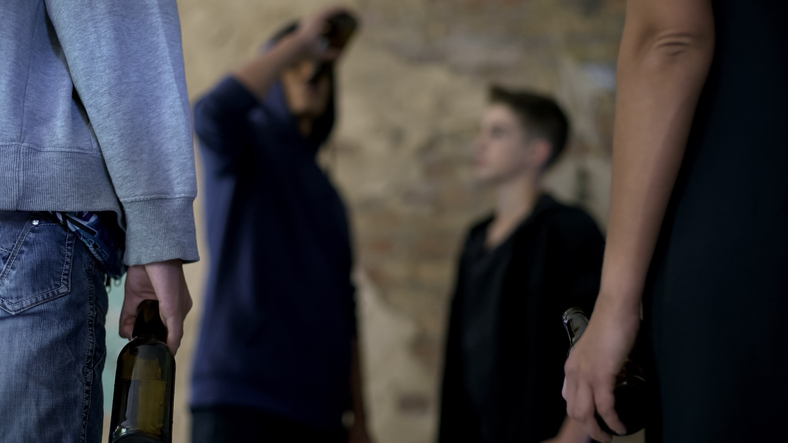Cravings for drugs or alcohol are extremely common for those who are in recovery from a substance use disorder. Sometimes those cravings seem to arrive out of the clear blue sky—and once you are in the grips of a craving you probably won’t spend too much time trying to figure out why it arrived when it did. Your interest at that point is—quite rightly—in weathering the storm so that your sobriety remains intact.
Still and all, it can be quite helpful to reflect on the potential sources of your cravings. Understanding what leads to these difficult moments might help you avoid cravings in the future. While it might not be possible to fend off all yearnings for drugs or alcohol, having a good sense of what triggers those appetites can help you keep them under control.
We suggest you ask yourself three key questions when it comes to the origins of cravings: Who are the people who seem to ignite cravings? Where are the locations that you most strongly associate with drinking or using drugs? What is going on in your life that might be causing cravings to pop up more frequently or more intensely?
Let’s look at each of these questions in turn.
Who Ignites Your Cravings?
Are there people in your life who might be firing up your longing for drugs or alcohol? The odds are pretty good that you can think of at least one or two people who get your appetites revved up—even though you are wholly sincere in your desire to stay sober.
The people we are talking about might fall into a number of different categories. Those include:
- People who were part of your social scene when you were still under the influence of drugs or alcohol—especially those who were also using substances.
- People (including well-meaning folks) who argue that your problems are all a matter of character or faith or willpower.
- People who seem to go out of their way to criticize or shame you—or to raise your stress levels.
- People who refuse to temper their own drinking (or drug use) in your presence—even after you have asked them to be more considerate.
Limiting the time you spend with those who seem to be the spark that leads to the flames of cravings is a good move for your ongoing sobriety.
Where are the Trouble Spots?
Are there particular spots you associate with drug use or drinking? Maybe a particular bar (or bars). Or maybe someone’s house where you regularly attended drug-fueled parties. Or even a lonely spot at home or work where you could indulge in drugs or alcohol without getting caught.
Returning to any of those kinds of places can lead to an uptick in your cravings. Your brain and body have been trained to associate some places with drugs or alcohol. The best thing to do, then, is to make a conscious choice to avoid these sorts of locations.
If some of the spots in question are, in fact, located at home or at your workplace, it might be useful to ask someone to hold you accountable if they notice you slipping away for unclear reasons.
What are Your Triggers?
Do you experience cravings more frequently when you are tired? What about when you are hungry or when you have been consuming a lot of sugar? Does a build up of stress seem to lead directly to a desire to drink or use drugs? Are your cravings more frequent when you are feeling bored or lonely or sad?
Knowing what conditions in your body or mind can lead to more cravings can help you come up with strategies that might help stave those cravings off. Sticking to a sleep routine, eating healthily, having an engaging habit, and maintaining a supportive circle of friends can improve your physical and mental health—and keep drugs and alcohol from calling out to you and threatening your hard-won sobriety.
We Crave the Opportunity to Help You Reclaim Your Sobriety
At The Aviary Recovery Center in Missouri, we are focused on helping the people we serve through personalized treatment programs that address each individual’s specific needs. If you are struggling with drugs or alcohol, we will see you through detoxification and rehabilitation—and then provide a continuum of care that supports the early and essential days of your recovery journey.
Our rehab program—grounded in both individual and group therapy—provides an opportunity to investigate your triggers and to learn strategies for overcoming cravings. In addition, we can address co-occurring mental health disorders like depression and anxiety that might be tangled up with your substance use disorder.
When you are ready to change your life for the better, we are ready to help you reclaim and maintain your sobriety.










